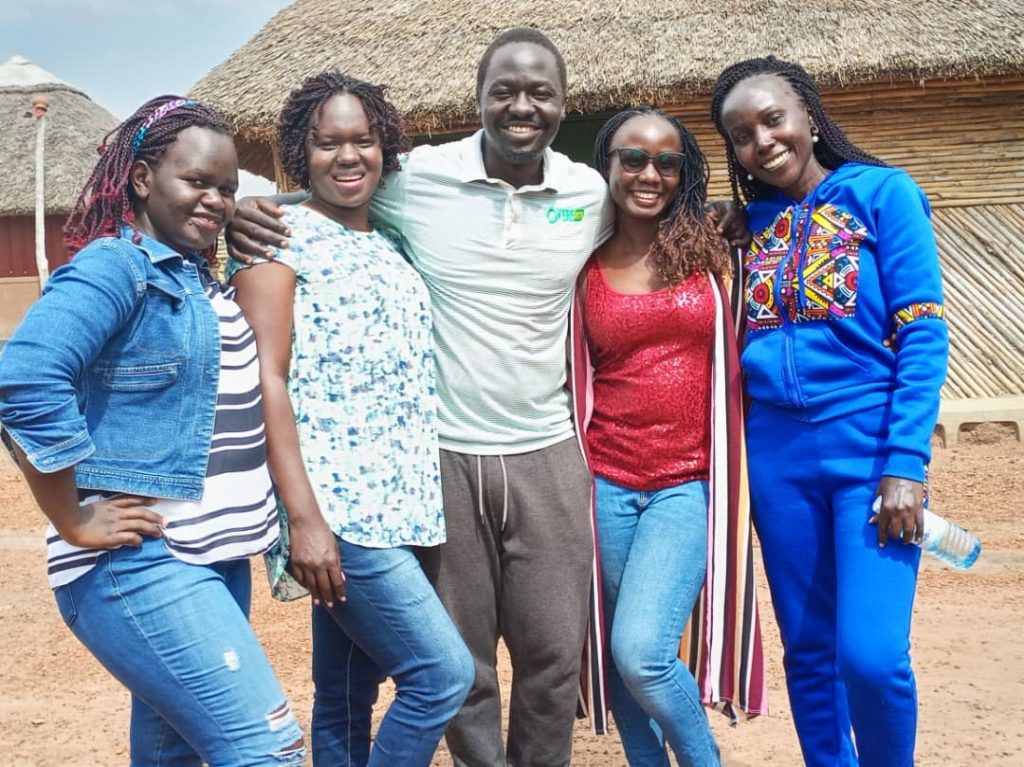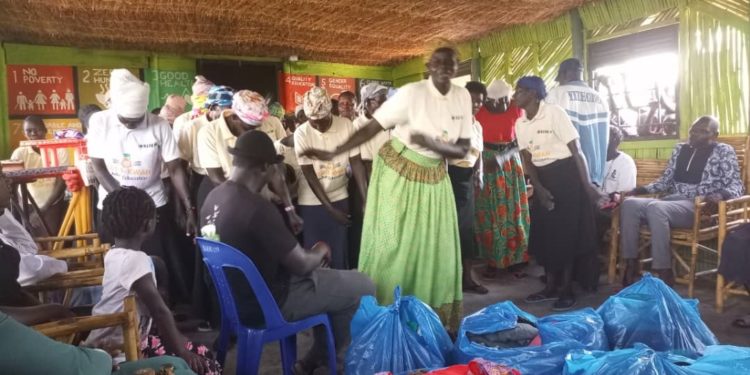OTUKE. Most of us find it hard to leave the city and its comfort. So, we make quick visits to the village for burials, Christmas and new year festivities, then flood back to the city.
But one social entrepreneur, Mr Ojok Okello, has made a difference and created a shining city in Okere village. This village metropolis now offers several urban and city comforts, including a pub, barbershop, local restaurant and a village bank, and providing other social and economic services.
Tucked away in far-flung Otuke District, northern Uganda, Okere City welcomes 50 visitors every month to enjoy its cultural experiences and learn from its unique rural community development of creating a city in the village.
The visitors’ book boasts of guests, mostly from Uganda and Kenya, and far away cities of London, Berlin, Paris, and New York, who flock to see the Okere City miracle.
For a community only rising from the ashes of the LRA war and brunt of Karimojong cattle rustling, their socio-economic renewal and change are remarkable. Today, at least 35 rural community members are directly employed by Okere City as nurses, teachers, masons, or sports coaches.

The Okere community school also offers up to 200 children the chance to advance their education while 120 women also access adult education from the functional adult literacy initiative of Okere city. Moreover, in Okere City also sits a health centre now complete with lab services to provide essential primary healthcare services to at least 25 community members on a daily basis.
There was no hiding this humble deed for Okere City founder, Mr Okello Ojok, who tweeted: “We have upgraded our drugs shop to a small health centre with a lab service … we are excited to make this facility become the heartbeat of health and well-being in our community.”
Indeed, everything is their own – community school, health centre, cows on the farm and the milk and beef from it. And all these achieved in the space of only three years, thanks to a mutual partnership with the community. And this did not escape Ms janet Abaneka, an educationist with UNICEF.
“I have witnessed for myself that Okere City is, indeed, a community of practice that everyone who cares about the attainment of the SDGs must be interested in.”
And Mr Okello Ojok agrees, “Trust is our most important currency. Okere City simply adds value and projections to the authentic community voices and ideas of the people in the village.”
Ms Abaneka had led the Lango Women’s Aspiration (LWA), a peer support network that had made a maiden trip to Okere City to experience its rural magic and give back to its rural folk.
It seems ancient Chinese philosopher Lao Tzu had Okere City model in mind when he criticized handouts and dependence but praised empowerment and independence of man. Today, Okere City tailoring centre trains 25 female youth in practical knitting, fashion and design skills.


The village youth are also taught sculpting, carpentry and joinery – all practical skills that give the young men in Okere City a future opportunity to be gainfully employed or create their own jobs in the village metropolis.
There are also other economic community initiatives that include shea-nut tree conservation, and music, dance and drama.
LWA donated 200 books to Okere City community school, dozens of clothes and shoes to the women and children of and also offered Shs600,000 as a start-up grant for an income-generating project of their choice. Some 80 women were also trained in liquid soap-making by Ms Kay Achak of LWA, and carried home 300mls of sweetly-scented-green-coloured liquid soap.
As we left Okere City, Mr Okello Ojok remained upbeat about the journey of Okere City to build a sustainable rural city and present a practical success story of attaining SDGs by 2030.
The initial investments for Okere City came from a family trust, major donors such as the Konrad Adenauer Stiftung, the Segal Family Foundation and Stanbic Bank.

“But we hope that soon, some major donors and investors shall find more reasons to invest in our cause,” Okello Ojok reassured us.
Our evening ended with watching boxing bouts that had our LWA visitors at times wincing and looking away. But thanks to the Okere City dance troupes whose okeme, adungu and drums played some of the most scintillating tunes and had the guests up on their feet to wiggle the evening away.
It was a long day, but certainly not the end of business.
We look forward to a second visit to Okere, the city that came to a village in Lango.












